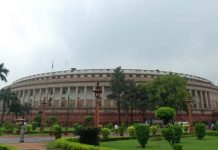This article is written by Manya Dudeja, from the University School of Law and Legal Studies, Guru Gobind Singh Indraprastha University. This article talks about the role of delegated legislation in an ever-changing and complex society like India
Table of Contents
Introduction
“There would be an end to everything, were the same man or the same body, whether of the nobles or the people, to exercise those three powers, that of enacting laws, that of executing the public resolutions and of trying the causes of individuals.”
-Baron de Montesquieu
The way each organ of the human body performs a unique function suited to its mechanism and creates a harmonious balance for the overall healthy existence of a person, similarly, the three great instrumentalities of the government, namely, the legislature, the executive, and the judiciary are entrusted with their special purpose and existence. It is evident from the way every organ is independent of the other, yet they are interdependent as they depend on each other for the collective functioning of the body, or in this case, the country. Montesquieu’s principle of separation of power which talks about how the complete concentration of power in any one organ of the government leads to tyranny has influenced and has an impact on the Indian system of separation of power, however, India has not accepted it in toto and has customized it according to the needs of the country. The Constituent Assembly of India has rightly formulated a system of checks and balances, where each organ of the government, even though has a separate and independent functioning with no outside interference, keeps a check on the other organs and in turn prevents the abuse and arbitrary use of power by any organ.
Delegated legislation refers to entrusting of law-making powers by a higher authority, in this case, the parliament to a lower or implementing authority, here, the executive or administrative authority. In other words, it is the delegation of law-making power to an organ other than the legislature by the legislature itself.
In this article, we will be understanding the accommodation of the principle of delegated legislation in India and its need in order to make governance effective in modern times, in the light of the ravages of the pandemic.
Evolution of delegated legislation in India
The roots of delegated legislation in India can be traced back to the pre-independence era. Till 1949, the Privy Council was the highest Court of Appeal and catered to appeals from India. It employed the doctrine of conditional legislation to meet the demand of administration and provided a subordinate status to the Indian legislature.
In Queen v. Burah, the maxim, “delegatus non potest delegare” which means that delegated power cannot be further delegated was not applied by the privy council since the power had been limited by the act of the British Parliament.
However, there was a shift in the position after independence. The issue of delegated legislation was laid down in front of the Supreme Court in the case of Jatindra Nath Gupta v. Province of Bihar and the Supreme Court finally laid down its opinions on the same in the case of re Delhi Laws Act, 1912. The point of concurrence of all these opinions was that the parliament and the State legislatures have the power to delegate law-making power. However, there were differences as to the extent of their power to delegate. While one view was that the legislature should not delegate its essential function of law-making or rule-making and should set guidelines and policies in the parent act, the other one was that the delegation of legislative power should be allowed to any extent as long as the legislature did not retire from its legislative function. The court adopted the former view, whereby, the legislative policy or standard should be clearly mentioned in the parent act.
Need of delegated legislation
Delegated legislation is the only practical tool today to govern a huge and diverse population. It should not only be permissible but should be wisely and efficiently utilized to deliver the best results suited to ground realities. As modern society becomes more complex, there is a growing trend of delegation of the legislative process to the subordinate authorities. A large chunk of the legislation today is issued by the administering authorities and hence delegating law-making powers has become an absolute necessity.
The following point out the need and advantages of delegated legislation for effective and practical governance in the country:
Reduce the legislature’s burden
The parliament is found to be overburdened and hence by delegating administrative rule-making, the quality of work can be enhanced as more attention to detail can be provided by the subordinate authority. Since the executive would be shouldered with the responsibility of taking care of specific tasks, they would be able to efficiently work out the minor and secondary details of the parent act as per the demand of the situation. Unlike the legislature which has to deal with a large number of tasks related to law-making. This can save crucial time for the legislature which can be diverted towards other important work.
Decentralization of law-making
This can be best understood by the principle of ‘empathy is stronger than sympathy’. When power to make laws is delegated to people who can more strongly resonate with the needs of the people who need it on the ground, the laws thus made would have the acceptance of the people who are to be governed. The executive working at the local level would be better able to understand the needs of the local people and hence devise the rules accordingly.
Expertise in specific subject matter
With the increasing advancement in every field, especially technology, modern societies have become complex environments. Due to this a lot of law-making requires technical knowledge of the subject matter that is being worked upon. By delegating the tasks, the parliament can ensure that officials who have specific knowledge related to the issue can propose more effective formulations and details. It is difficult to expect that members of parliament would have all the knowledge related to specific subjects on which the law is being made.
Enables flexibility in legislation
Delegated legislation allows a certain degree of flexibility in the law, as this allows the parliament to only focus on the broad principles of law and allow the executive to work out the details as suited to the local people. If the details are to be set out by the parliament itself, any change to be done later would be very difficult due to the amendment procedure of the parliament. On the other hand, if details are delegated out to be set by the executive, the system would allow changes to be made depending on the time and the geographical location.
Experiment on a small sample
Certain laws can be implemented on a small scale by the executive to test their efficacy, this would help in improving governance as the law before being implemented at the national level would have been tried and tested at the local level. This would also mitigate the risk of implementation-level problems as they could be identified and ruled out at this point.
Looking at all the above-mentioned advantages of delegated legislation, it is understood that delegated legislation should be encouraged and widely used to make the governance of such a huge population easier and effective at the same time.
The conflict between the theory of separation of powers and delegated legislation
According to the separation of power theory, the work of law-making and framing rules, regulations, and bye-laws rest with the legislature, while the part of executing these frameworks has been entrusted to the executive. The separation of power theory aims to prevent despotism. Even though considered important, the Indian constitution does not explicitly state the separation of power theory. It is only briefly mentioned in Article 50 of the Directive Principles of State Policy where it talks about the need for separation between the judiciary and the executive. According to the concept of delegated legislation or subordinate legislation, the law-making power of the legislature with respect to certain circumstances and parent acts has been entrusted to the executive. Though against the principle of separation of power, administrative legislation is considered a necessary infringement of the separation of power theory.
There have been attempts to bring together the two theories by using the word ‘quasi’ as in ‘quasi-legislative power’. It should be understood that the theories today function on ‘mutual restraint’ rather than complete separation. The Supreme Court also in the case of Ram Jawaya Kapoor v. the State of Punjab highlighted that the Constitution even though differentiated the functions of the three organs of the government, did not mention any rigid separation of one from the other. It is only through cooperation and the common intent of the three organs to work in the best interest of its people, that they can be brought together and the two doctrines can coexist.
Principles set to control delegated legislation
Parliamentary control
Since the delegation of law-making power to the executive is the work of the legislature, it is also responsible to ensure its proper exercise and prevent the misuse and abuse of this power by the executive organ. Legislative veto refers to the power of the parliament to criticize the executive in case of abuse of delegated power. The executive in India is responsible for the legislature. This control can be further classified into:
Direct general control
The parliament practices direct general control on the delegated authority by discussion and debate on the act under which such delegation is made. It also examines the requirement, nature, and extent of the delegation as well as the delegated authority. Members of the house have the power to question the delegation and thereby send a notice for discussion under Rule 59 of the Procedure and Conduct of Business in Lok Sabha Rules. Members also have the power to move resolutions if they feel dissatisfied with the answers of the government and feel that the matter of delegation requires immediate attention. A private member can also move a bill for amendment in the parent act.
Direct special control
This kind of control is practiced through ‘laying on the table’, which makes the legislature aware of the laws framed by the delegated authority and allows it a chance to question the delegated authority on the same. This laying down provision can be directory or mandatory.
Indirect control
Indirect control over delegated legislation is ensured through the various committees and sub-committees formed by the parliament. The most important being the Committee on Subordinate Legislation. The work of this committee is to ensure that the delegated power is within the purview of the parent act and that the power is duly exercised. It also checks any transgression of power under the veil of subordinate legislation by the delegated authority. The Rajya Sabha Committee which constitutes 15 members was initially instituted in the year 1964 under the Rules 204-206 of the Rules of Procedure and Conduct of Business in Rajya Sabha.
Procedural control
A procedural control is a more effective measure than parliamentary control. The parent act which delegates the power to the executive also lays down the rules and guidelines which are to be followed during the exercise of this power. If these guidelines are termed as mandatory and the executive does not follow them, the rules framed thereby by the executive would become invalid. Procedural control can be practiced through various methods in India such as mandating prior consultation in cases where it is felt necessary. It can be done through ‘Antenatal publicity’ i.e by prior publicity of rules and regulations as deemed sufficient and when found necessary. This is done under Section 23 of The General Clauses Act, 1897. It is mandatory that the rules made under delegated legislation are published and adequate coverage is provided to them so that the citizens are prepared well in time and it does not come as a surprise. The popular maxim, “ignorantia juris non excusat” which means, ignorance of the law is no excuse, can also be emphasized by providing enough coverage to delegated legislation. If the parent act does not mention a mode of publication, the same would be done in the Official Gazette of India.
Judicial control
Judicial review is the tool through which the judiciary can exercise control over delegated legislation. It can scrape off the legislation which it finds arbitrary, unreasonable, or unconstitutional. The grounds on which a delegated legislation can be declared invalid are:
The parent act is ultra vires to the Constitution
The legislature is not allowed to delegate its essential functionality to the executive and if it does so, such delegation would be arbitrary and invalid. Further, if the parent act under which such delegated legislation is framed is found to be contrary to the constitution, the delegated legislation so made under it would become void.
The delegated legislation is ultra vires the Constitution
There can be a case where the parent act is in consonance with the constitution but the delegated legislation made under it is ultra vires the constitution and violates its provisions. In such a case, the constitutionality would be considered as it cannot be presumed to be authorized despite being ultra vires the constitution.
The delegated legislation is ultra vires the parent act
There can arise situations when the delegated legislation framed under the parent act is in excess power and the extent is not authorized by the parent act or that its rules are opposing the parent act. It can be arbitrary and unreasonable and infringing the private rights of the individuals. It could also be vague in its formulations and be in conflict with some other already existing statute.
Delegated legislation amid the covid pandemic
Covid 19 has exposed a collapsing system and has revealed to the people the inefficiencies of their government, both the Central and the State governments have failed their electorate. The pandemic is claiming the lives of a large number of people and hence any delay can be lethal, it is vital that quick decisions are made, formulated, as well as implemented, and hence delegated legislation during this time would ensure that life-saving policies are quickly enforced and lives are saved. A few examples of delegated legislation amid the pandemic are:
- The Disaster Management Act, 2005 was enacted and the act delegated powers to both the Central and State governments to lay down and make policies appropriate to the situation. Power was also delegated to the Union Health Secretary by the Union Home Secretary to better administer the Covid situation.
- Under the Epidemic Disease Act, 1897, states like Delhi, Odisha, Maharashtra, Karnataka formulated their own rules and regulations and quarantine measures. The local administration has also enforced systems of compulsory quarantine under the aegis of this act.
- Recent times also saw the enforcement of Section 144 of CrPc to curb the spread of Covid 19, the power to impose this section has been delegated to magistrates and commissioners, who depending on the situation and need of the area take the decision.
- In Tamil Nadu, an expert State appropriate committee comprising 19 members has been appointed to develop treatment protocols for managing cases and provide suggestions for intervention, prevention, and control of Covid 19 in the State. Similarly, an epidemiological committee has been set up in Andhra Pradesh to tackle the disease there.
Hence, delegated legislation has immensely contributed to making administration more effective during this time of crisis.
Conclusion
The theory of separation of power and the practice of delegating law-making power by the parliament has to work in concurrence for democracy to function. While separation of power is vital to ensure the independent decision-making power to the three great instrumentalities, the delegation of decision-making power ensures efficient governance of a complicated society. They both cannot be separated from each other and have to be balanced. Delegated legislation has indeed seen remarkable growth in recent years due to its ability to accommodate different interests. Especially in times like these, when the country is trying to swim its way through a global pandemic, delegated legislation has proved to be an asset.
However, it is important to control and keep a check on the exercise of delegated legislation to prevent it from becoming arbitrary and over-powering the legislature and for this various mechanisms have been devised. Hence, delegated legislation if utilized wisely with careful scrutiny and correct limits can prove to be an asset to a country.
References
- Alexandrowicz-Alexander, C. H. “Delegation of Legislative Power in India.” The American Journal of Comparative Law 3, no. 1 (1954): 72-79. Accessed April 27, 2021. doi:10.2307/837126.
- A Textbook of Jurisprudence by Autar Krishen Koul
- Questions of Legislative Policy in Delegated Legislation – Recent Cases by K. C. Joshi
- Separation of Power and Delegated Legislation: An Implicit Poise Created by Judicial Detour by Pallavi Bajpai and Mohit Vats
- https://timesofindia.indiatimes.com/city/visakhapatnam/committee-set-up-to-devise-warning-system-for-covid/articleshow/80063401.cms
- https://www.jlsrjournal.in/volume-2-issue-2/importance-of-delegated-legislation-in-the-light-of-covid-19-by-arshiya-firdous-sonali-supriya/
LawSikho has created a telegram group for exchanging legal knowledge, referrals, and various opportunities. You can click on this link and join:
 Serato DJ Crack 2025Serato DJ PRO Crack
Serato DJ Crack 2025Serato DJ PRO Crack










 Allow notifications
Allow notifications


